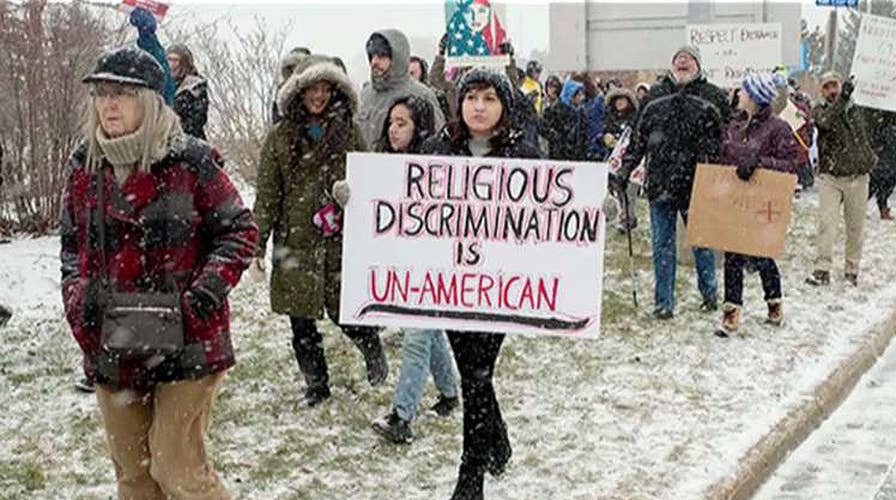Federal judge puts Trump's revised travel ban on hold
Hawaii judge issues temporary restraining order
Five judges on the Ninth Circuit Court of Appeals have broken ranks with their colleagues and voiced support for the legality of President Trump’s original travel ban.
The judges, all Republican appointees, said Wednesday they disagreed with the three-judge appeals panel that struck down the initial ban on travel from seven Muslim majority nations the administration said have terrorism problems and an inability to help the U.S. vet incoming immigrants.
"Whatever we, as individuals, may feel about the President or the Executive Order, the President's decision was well within the powers of the presidency," the judges stated in an unsolicited filing.
Rather than appeal to the wider circuit in an en banc hearing or appeal to the U.S. Supreme Court, the Trump administration fashioned a new version of the ban. A federal judge in Hawaii issued an injunction against the updated travel ban on Wednesday, a maneuver that could send the matter back to the same, oft-criticized Ninth Circuit which covers Hawaii.
The development comes as three judges from the Ninth Circuit Court of Appeals testified Thursday at a House Judiciary subcommittee hearing on proposals to split the circuit. It is the largest of the 13 U.S. Courts of Appeals and has a reputation for being ultra-liberal and frequently overruled by the Supreme Court.
Vanderbilt Law School Professor Brian Fitzpatrick pointed to what he called the "indisputable" fact that the circuit has the highest reversal rate of any court of appeals, and said one of the reasons for this was its size.
"If we go to smaller circuits we reduce the number of outlier
decisions the court malkes,” he said. "Smaller courts lead to fewer outlier decisions."
Circuit judges disagreed with Fitzpatrick, and said it would lead to other problems.
"It would certainly increase delay on the appelate level, not decrease delay," Chief Judge Sidney Thomas told lawmakers. Thomas also said the vast majority of judges on the circuit are against breaking it up. Democrats, meanwhile, warned about what they called "judicial gerrymandering."
"To manipulate federal courts in order to achieve political ends you seek is highly inappropriate,” Rep. Jerrold Nadler, D-N.Y., told his Republican colleagues.
The five judges in the latest filing had hoped the Trump administration would appeal the original injunction to the entire Ninth Circuit where they could formally register their dissent or even reverse the three-judge panel’s decision.
The comments do not impact the move by the federal judge in Hawaii who blocked Trump's new travel ban on Wednesday. Another federal judge in Maryland also issued an injunction against the travel ban, which critics say is a thinly veiled ban on Muslim immigration.
The Trump administration asserts that most of the world’s Muslims are welcome to apply to travel to the U.S., but that the ban is necessary for national security. It originally banned travel from Iran, Iraq, Libya, Somalia, Sudan, Syria and Yemen. Iraq was dropped from the original list.
The initial ban was well within the president’s authority, according to the five judges.
"The panel's errors are many and obvious" and the decision "stands contrary to well-established separation-of-powers principles," wrote Judge Jay Bybee in a 26-page filing.
"We are all acutely aware of the enormous controversy and chaos that attended the issuance of the Executive Order," but "we cannot let our personal inclinations get ahead of important, overarching principles about who gets to make decisions in our democracy."
"Such personal attacks treat the court as though it were merely a political forum in which bargaining, compromise, and even intimidation are acceptable principles," the judges added. "The courts of law must be more than that, or we are not governed by law at all."













































